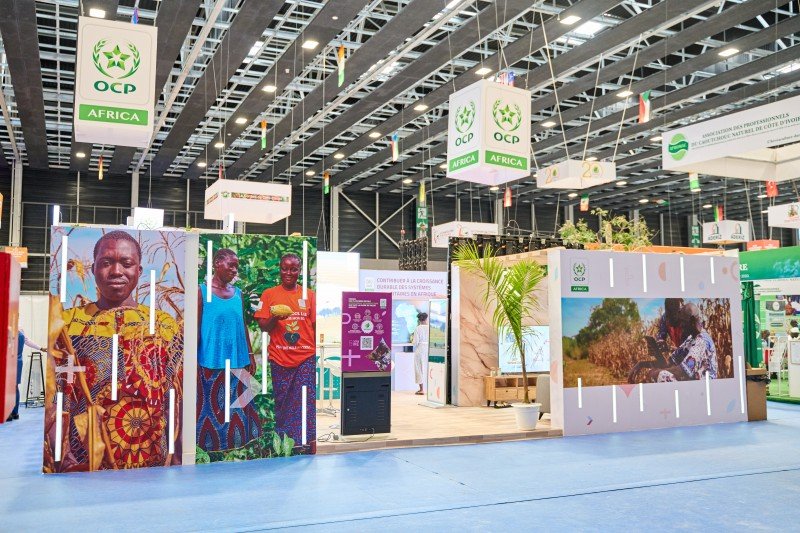CEO of OCP Africa, Mohamed Anouar Jamali, praised Côte d’Ivoire as a “true agricultural treasure in Africa” during his address at the SARA exhibition.

The 6th International Agriculture and Animal Resources Exhibition (SARA 2023) in Abidjan, Cote d’Ivoire has provided a platform for OCP Africa, the Moroccan fertilizer giant, to reaffirm its commitment to advancing agriculture in Africa.
Running from September 29 to October 8, OCP Africa is showcasing its expertise and underscoring the positive influence of its contributions to agricultural development, particularly in Cote d’Ivoire.
In a statement issued on Monday, OCP Africa recalled the cooperative agreement signed with the Cote d’Ivoire government in 2022, aimed at bolstering agricultural production systems. The partnership seeks to foster the growth of the processing industry and promote inclusive economic development.
The statement emphasized, “In collaboration with Ivorian authorities, OCP Africa has identified five high-impact priority projects that are currently being implemented throughout the country.”
CEO of OCP Africa, Mohamed Anouar Jamali, praised Côte d’Ivoire as a “true agricultural treasure in Africa” during his address at the SARA exhibition.
Jamali cited impressive statistics, highlighting Cote d’Ivoire as the world’s leading cocoa producer with a production surge of nearly 50% in a decade. He also noted the country’s position as the second-largest African producer and the ninth-largest globally for palm oil.
He stated, “Our group is engaged in multiple transformative projects in alignment with the national agricultural development strategy.”
OCP Africa’s core objectives include the modernization of agriculture through various programs, including support for small-scale farmers and the adoption of appropriate technologies and practices.
Jamali proudly concluded, “By collaborating with the Ivorian government, we are proud to actively contribute to unlocking Cote d’Ivoire’s agricultural potential for the benefit of the nation and its people.”
Projects in Focus:
New Generation Agricultural Service Centers (CSAs):
A key initiative under the cooperation agreement involves establishing and operating 10 CSAs. Already, three are operational in Korhogo, distributing nearly 2,000 tonnes of fertilizers to small-scale farmers. CSAs also operate in Odienne with 4,500 hectares of fully mechanized cereal crops, and in the capital, Yamoussokouro.
Geographic and Agricultural Information System Hub:
This project aims to create a decision support tool for regular assessment of agricultural activities. The platform will offer essential data for policy development, in-season interventions, and comprehensive crop monitoring.
Digital Farming School (DFS):
This innovative Agri-Tech training concept, coupled with a 170-hectare digital agricultural experimental farm, is a joint venture with the Mohammed VI Polytechnic University and the Felix Houphouet Boigny Polytechnic Institute in Yamoussoukro. It represents a tangible contribution to Cote d’Ivoire’s vision of empowering its youth in 2023.
Startup Incubation Program in Digital Agriculture:
OCP Africa initiated a startup incubation program focusing on digital agriculture to support innovative projects in the field.
Value Chain Structuring for Cereal Crops:
The establishment of model farms plays a pivotal role in structuring the value chain for cereal crops.
OCP Africa’s Commitment to Food Security:
OCP Group, including OCP Africa, has been resolute in its dedication to enhancing food security across the continent. Earlier this year, Mohamed Anouar Jamali reiterated OCP Africa’s commitment to improving food security in Africa. The group allocated four million tonnes of fertilizer customized for African soil and crops. This allocation aims to impact 44 million farmers on the continent, representing a significant increase from OCP’s 2021 allocation.
Food insecurity remains a pressing issue in Africa, affecting approximately 140 million people. This alarming statistic underscores the urgency of collective efforts to address food security challenges in the region.